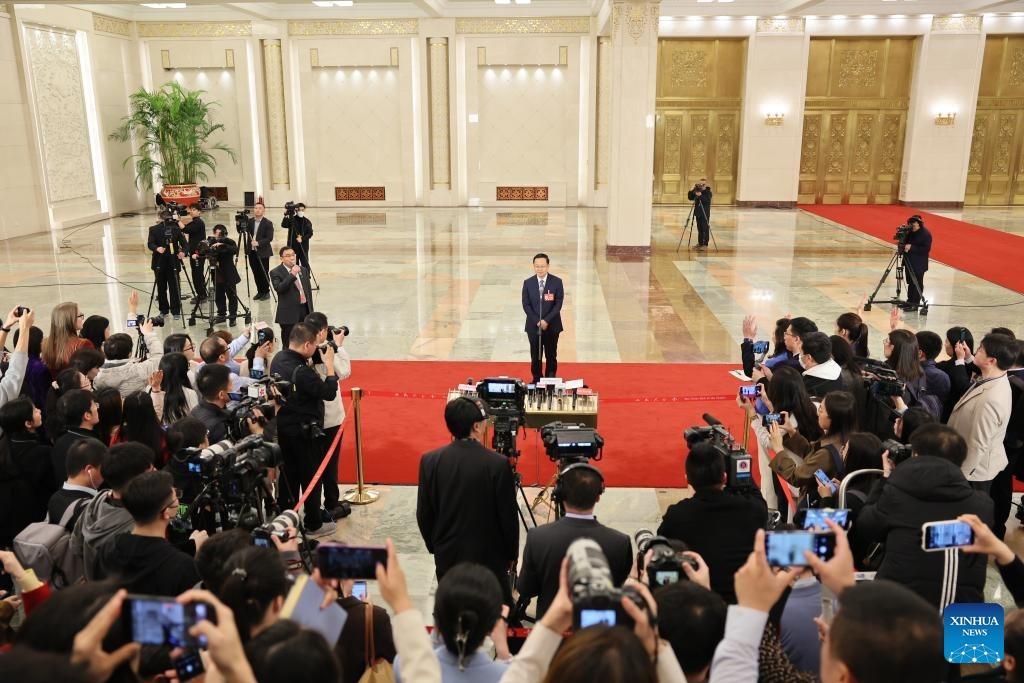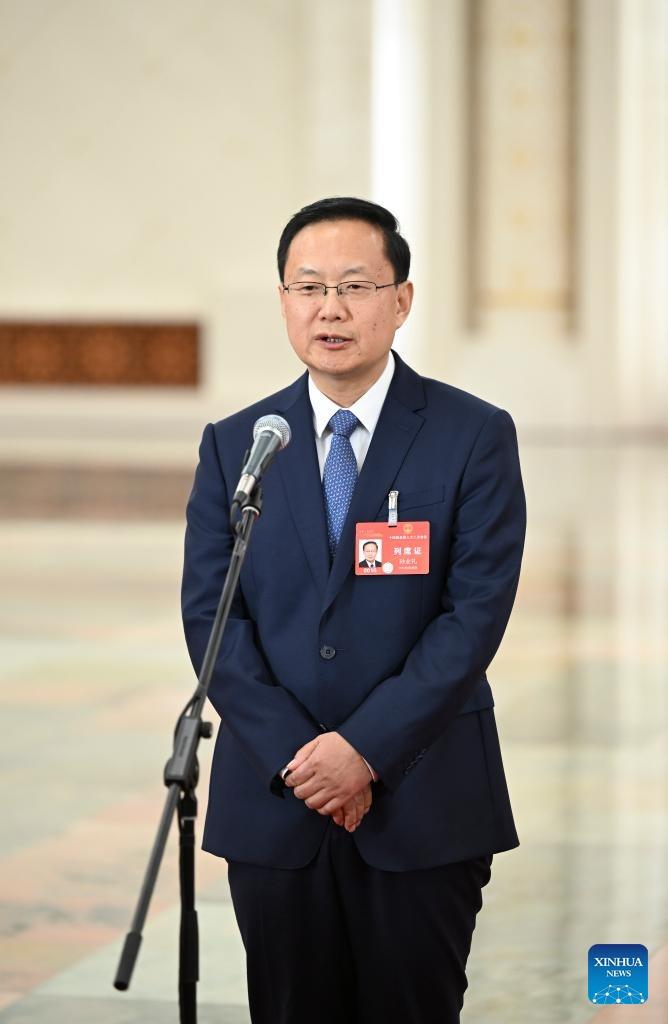 China’s Minister of Culture and Tourism Sun Yeli speaks during an interview after the closing meeting of the second session of the 14th National People's Congress at the Great Hall of the People in Beijing, China, March 11, 2024. (PHOTO / XINHUA)
China’s Minister of Culture and Tourism Sun Yeli speaks during an interview after the closing meeting of the second session of the 14th National People's Congress at the Great Hall of the People in Beijing, China, March 11, 2024. (PHOTO / XINHUA)
BEIJING – "Welcome to China!" China's tourism minister Sun Yeli said in English on Monday as he expounded on measures to make foreigners' tours in China more convenient and smooth.
Sun, minister of culture and tourism, highlighted the payment difficulties encountered by inbound tourists as they find it inconvenient to travel in the country where cashless payment via smartphones has dominated commercial venues ranging from hotels to grocery stores.
READ MORE: Chinese payment apps facilitate overseas tourists
"This is indeed an unexpected, new problem as mobile payment develops very rapidly in China," he told domestic and foreign journalists after the closing meeting of China's annual national legislative session in Beijing.
We are optimizing each step of the inbound tourism process, streamlining procedures ranging from visa applications to flight arrangements, hotel check-ins, shopping and sightseeing.
Sun Yeli, Minister of Culture and Tourism, China
The central authorities paid great attention to this issue and have established a coordination mechanism to solve it, he said.
Detailed measures are being implemented, such as re-installing and upgrading point-of-sale devices, to make sure that when foreign tourists travel in China, they will be able to use bank cards in diverse venues, such as hotels, airports, tourist attractions and shopping areas. They can also choose to scan QR code or use cash to make payment, he said.
Domestic payment platforms and enterprises have worked together to simplify the process by which inbound foreign tourists register for China's payment applications, and all sites of consumption are mandatory for accepting the Chinese currency in cash, said Sun.
"We are optimizing each step of the inbound tourism process, streamlining procedures ranging from visa applications to flight arrangements, hotel check-ins, shopping and sightseeing," he said.
With the implementation of these measures, foreign tourists visiting China will enjoy the same level of convenience in accommodation, transportation and shopping as domestic tourists, he said.
ALSO READ: China takes measures to facilitate entry of foreign nationals
"We sincerely welcome tourists from all over the world to visit China, enjoy the charm of Chinese culture, discover rapid changes of the country, and experience hospitality of the Chinese people," Sun said.
 Minister of Culture and Tourism Sun Yeli talks to the media after the closing meeting of the second session of the 14th NPC at the Great Hall of the People in Beijing, China, March 11, 2024. (PHOTO / XINHUA)
Minister of Culture and Tourism Sun Yeli talks to the media after the closing meeting of the second session of the 14th NPC at the Great Hall of the People in Beijing, China, March 11, 2024. (PHOTO / XINHUA)
Robust recovery, vigorous growth
The minister said the cultural and tourism industries of the country saw strong recovery and vigorous growth in 2023.
"The tourism boom has played a crucial role in stimulating domestic demand, promoting employment, invigorating the market and bolstering confidence," he said.
During the past winter season, China witnessed an ice-and-snow tourism boom in its northeastern regions. In Heilongjiang province alone, from November last year to February, the number of tourists reached 120 million, generating tourism revenue of 170 billion yuan (about $23.95 billion), according to the minister.
READ MORE: Inbound tourism recovers fast from pandemic
The entire country also experienced a tourism boom last year. Domestic tourists made nearly 4.9 billion trips in 2023, with total tourism expenditure approaching 5 trillion yuan, he said.
The market for performing arts also thrived last year. Approximately 440,000 commercial offline shows were staged, generating revenue of over 50 billion yuan. Meanwhile, online performing activities proved to be even more popular, with revenues roughly surpassing 200 billion yuan and 770 million participants, Sun said.


